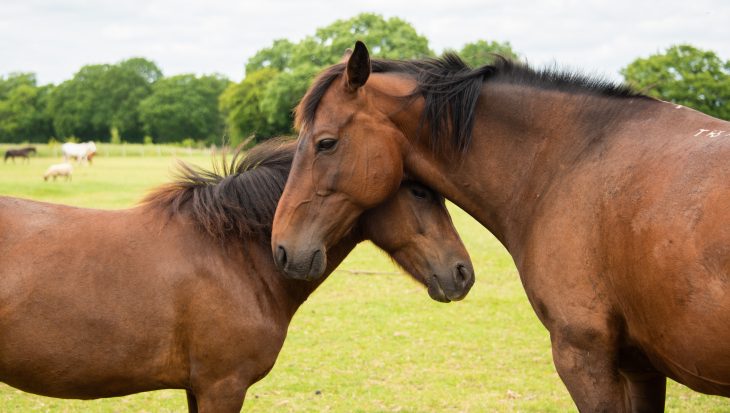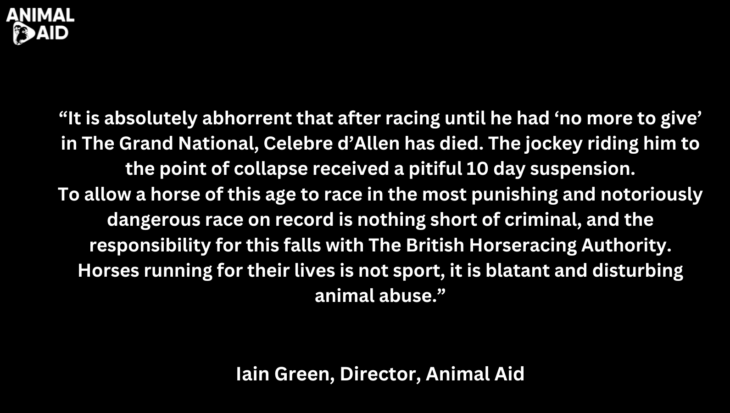Following the publication of a landmark Animal Aid report analysing the cause of so many equine deaths at Cheltenham Racecourse, this year’s Festival will see a reduction in the number of runners at the Gloucestershire venue.
Novice and Juvenile hurdle races at the March meeting will now be limited to a maximum of 22 runners, down from 24. For races featuring more experienced hurdlers, numbers are to be reduced to 26 from 28. Further rule changes apply to Conditional Jockeys (trainees) to ensure that only the most competent ride at the Festival meeting.
Animal Aid’s March 2014 report, ‘Why more horses die at Cheltenham than at any other British Racecourse’ highlighted a number of factors that were likely to have contributed to the 48 deaths between March 2007 and December 2013. Numbers of horses raced and the experience of jockeys taking part were key factors. In particular, races of 23, 24 and up to 28 runners saw a high incidence of equine fatalities. Horses ridden by Conditional Jockeys were particularly vulnerable.
Says Dene Stansall, Animal Aid Horse Consultant and author of the report:
‘While the new safety measures to be implemented by Cheltenham are welcome, they still fall far short of what is needed. Cheltenham Racecourse officials refuse to face up to the inherently lethal nature of the course and the unacceptable burden this places on horses who are made to race there.’
Notes for Editors

